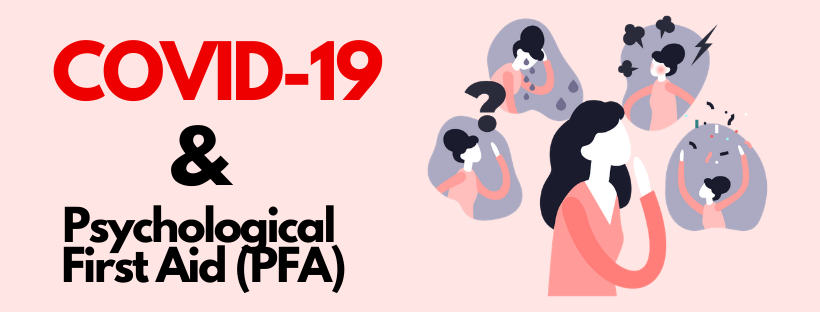
#stayhome #staysafe #staysane
The recent outbreak of Covid-19, its impact and the uncertainty that it brings can cause concern, anxiety and fear. During the current Circuit Breaker, what can we do to keep ourselves and others around us safe and sane?
For those who are Psychological First Aid (PFA) trained, this is a good time to put what you have learned to good use!
Here are some PFA action principles of Look, Listen and Link when offering remote support (providing PFA via phone or online media without physical contact with the person).
The principle of Look in relation to assessing the people’s needs:
- For people seeking practical and emotional support, you may need to establish whether the individual is affected personally by worries, by violence, by fear of losing their livelihood, or is he or she a friend or a relative of someone who’s ill;
- Understand the situation that they are in: are they in circuit breaker/isolation/quarantine alone or with families? Are they a frontline responder/a patient etc...
- The anxiety that the callers are experiencing - are they afraid of infecting others or their loved ones who need their support?
The principle of Listen refers to:
- Pay attention and listen actively
- Accept the person’s feelings
- Try to calm the distressed
- Ask about the person’s needs and concerns
- Help them find solutions to their needs and problems
The principle of Link refers to assisting the individual with:
- Access to information
- Connecting with loved ones and social support
- Tackling practical problems
- Accessing essential services and other help.
Refer to specialised psychological help if the person seeking help:
- Has not been able to sleep for a week and is confused and disorientated
- Is so stressed that he or she is unable to function normally and self care (eg. not eating or maintaining personal hygiene)
- Loses control over their behaviour and behaves in an unpredictable or destructive manner
- Threatens to harm self or others
- Abuses drug or alcohol consumption
- Has chronic health conditions and needs more support
- Presents symptoms of severe mental health conditions
- Is experiencing violence or is being abused in any way
- Suffers from a psychological disorder and/or were taking medication
While many/if not all of us may need a listening ear at some point in time, some of the following groups of people may be more vulnerable during this period:
- People serving Stay-Home Notice or on Quarantine Order
- Patients who have contracted or recovered from Covid-19
- Families and friends of deceased
- The elderly and other groups who may find themselves isolated and appreciate a daily well-being and care call
- Healthcare workers and social welfare responders providing care and treatment to patients
- Caregivers with children at homes due to closure of schools
- Other groups with previous vulnerabilities such as mental health or substance abuse problems, etc.
Source: IFRC
You might be interested in: Advice for all during this Circuit Breaker period

